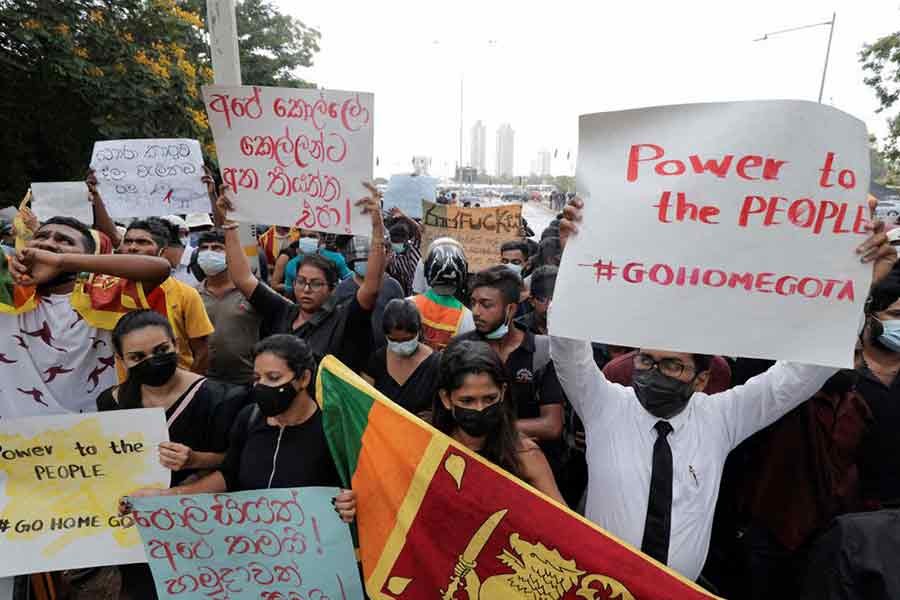Sri Lankan President Gotabaya Rajapaksa will not resign, a minister said on Wednesday, despite demonstrations against his handling of the country's worst economic crisis in decades and as doctors held street protests over a shortage of medicine.
Rajapaksa, governing the South Asian island nation since 2019 with other family members in top positions, revoked a state of emergency late on Tuesday after five days as dozens of lawmakers walked out of the ruling coalition, leaving his government in a minority, reports Reuters.
Debt-laden Sri Lanka has been struggling to pay for imports due to a shortage of foreign exchange, and is due to start talks with the International Monetary Fund (IMF) later this month for a loan programme.
Late on Wednesday, Rajapaksa announced a three-member advisory group to help the government in the negotiations with the IMF. The group includes a former central bank governor, a former World Bank and a former IMF official.
"Among the responsibilities that the Presidential Advisory Group will undertake are to engage in discussions with relevant Sri Lankan institutions and officials engaging with the IMF," the president's media division said in a statement.
Sri Lankans have been suffering from shortages of fuel, power, food, drugs and other items for weeks, and doctors say the entire health system could collapse.
Street protests began a month ago and have intensified in recent days, with people openly defying the emergency and a weekend curfew to demand the ouster of Rajapaksa.
"May I remind you that 6.9 million people voted for the president," Highways Minister Johnston Fernando said in parliament in response to criticism from the opposition and cries of "Go home Gota".
"As a government, we are clearly saying the president will not resign under any circumstances. We will face this."
After Fernando's speech, nearly 200 doctors, some in their blue scrubs, marched down a road by a national hospital in the commercial capital Colombo, chanting slogans against the government.
Some held a banner saying: "Strengthen people's right to live. Declare a health emergency."
Malaka Samararathna, who works at the state-run Apeksha Hospital that treats tens of thousands of cancer patients from across the country every year, said cancer drugs such as Filgrastim and Cytarabine, as well as some antibiotics, were in short supply.
Vasan Ratnasingam, a doctor at Colombo's Lady Ridgeway Hospital for Children, the largest such free-of-charge facility in Sri Lanka with some 2,000 beds, said they had run out of at least one vital drug, Digoxin, given for heart conditions.
"And other than that, 102 essential drugs are in shortage. Some of those drugs are frequently used, such as for respiratory tract infections, for urinary tract infections," he said, warning doctors would have to stop routine treatments and surgeries if immediate action was not taken.


